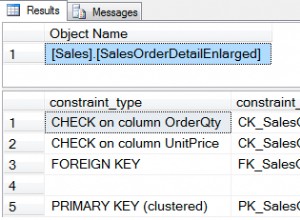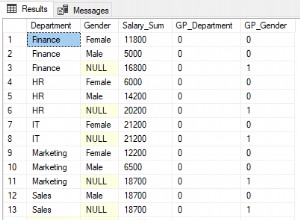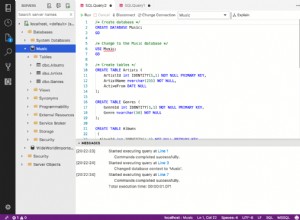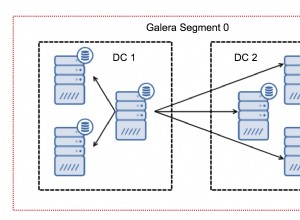Puoi eseguire Postgres in questo modo (mappa una porta):
docker run --name some-postgres -e POSTGRES_PASSWORD=mysecretpassword -d -p 5432:5432 postgres
Quindi ora hai mappato la porta 5432 del tuo container alla porta 5432 del tuo server. -p <host_port>:<container_port> .Quindi ora il tuo postgres è accessibile dal tuo public-server-ip:5432
Per testare:eseguire il database postgres (comando sopra)
docker ps
CONTAINER ID IMAGE COMMAND CREATED STATUS PORTS NAMES
05b3a3471f6f postgres "/docker-entrypoint.s" 1 seconds ago Up 1 seconds 0.0.0.0:5432->5432/tcp some-postgres
Entra nel tuo container e crea un database:
docker exec -it 05b3a3471f6f bash
example@sqldat.com:/# psql -U postgres
postgres-# CREATE DATABASE mytest;
postgres-# \q
Vai al tuo localhost (dove hai qualche strumento o il client psql).
psql -h public-ip-server -p 5432 -U postgres
(password mysecretpassword)
postgres=# \l
List of databases
Name | Owner | Encoding | Collate | Ctype | Access privileges
-----------+----------+----------+------------+------------+-----------------------
mytest | postgres | UTF8 | en_US.utf8 | en_US.utf8 |
postgres | postgres | UTF8 | en_US.utf8 | en_US.utf8 |
template0 | postgres | UTF8 | en_US.utf8 | en_US.utf8 | =c/postgres
Quindi stai accedendo al database (che è in esecuzione nella finestra mobile su un server) dal tuo localhost.
In questo post viene spiegato in dettaglio.




